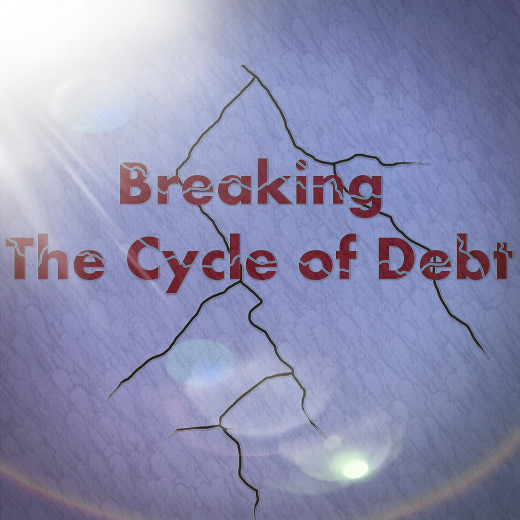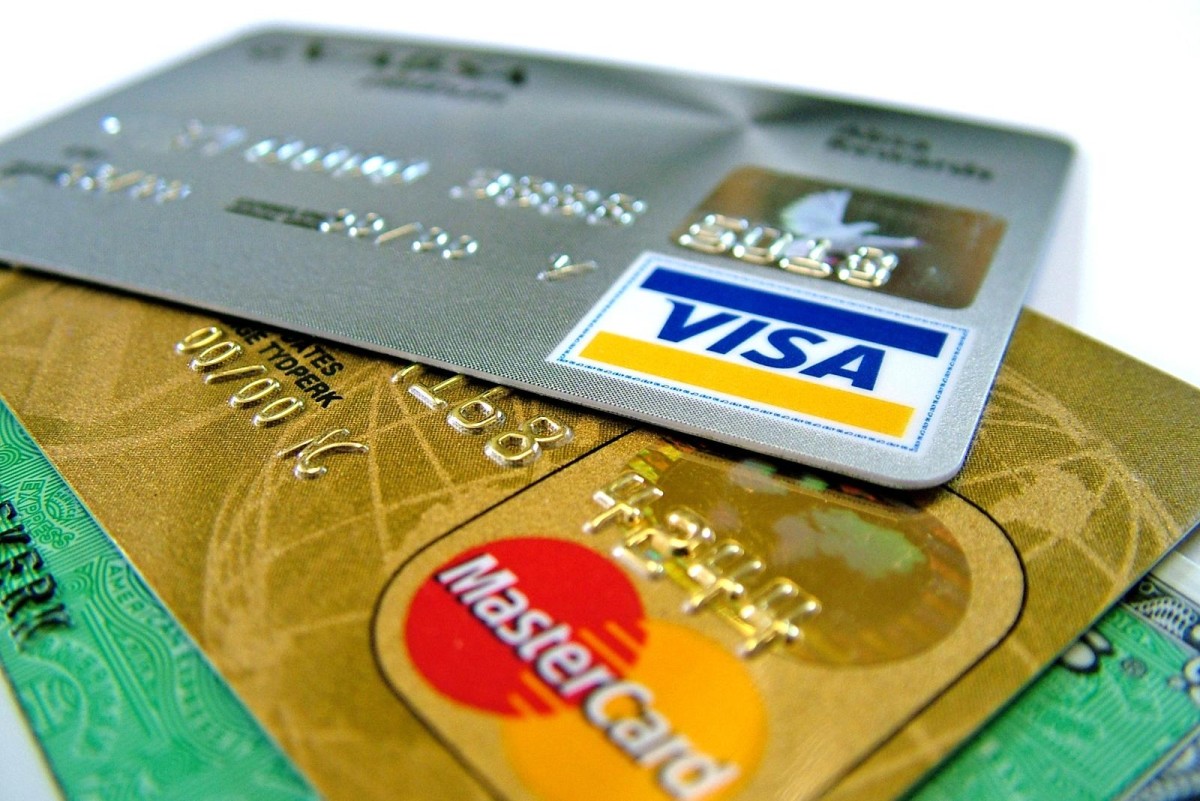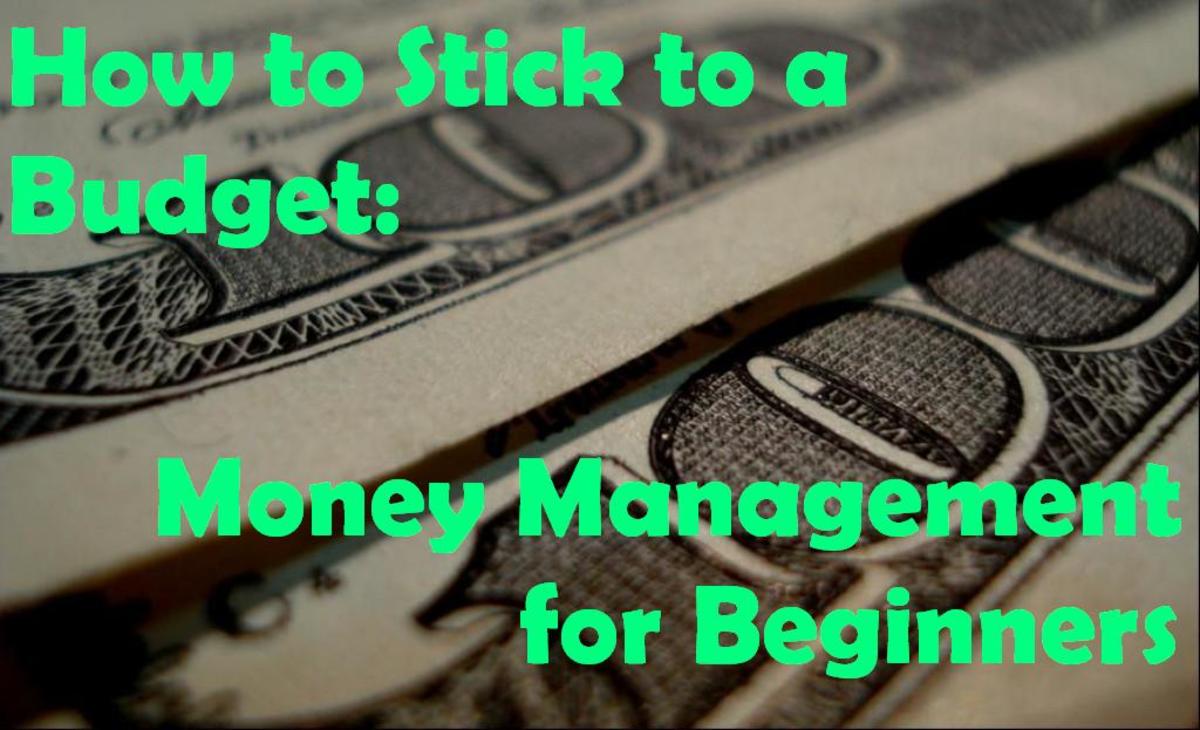Breaking The Cycle of Debt

How Credit Card Debt is Accumulated
Credit card debt is unsecured consumer debt. That is, it's debt accumulated by the consumer that creates a risk for the credit card issuers as no collateral or assets are held against the borrowed funds. Debt accumulates whenever a cardholder purchases a service or product through the card. As the consumer purchases more and more goods, the credit card continues to accumulate a debt balance until the credit limit has been reached. Credit limits vary among cards and individuals, as the limit (much like the interest rate) is directly associated with the card holder's credit history. If charges are built upon the card(s) that go over the credit limit, the cardholder may be charged an over-limit fee. This fee can be as much as $75 and be applied to each billing cycle until the balance is paid down. Over-limit charges add to credit card debt and may be subject to interest accrual.
Interest & Penalties
Debt increases via interest and penalties when a consumer does not pay their credit card bills on the specified billing cycle. When a payment billing cycle is missed by the cardholder, a late payment fee will be incurred. The late fee can be anywhere from $10 to $75 and increases the debt load of the consumer. All missed payments are reported to the credit bureau for filing, affecting the card holder's credit score. If subsequent billing cycles pass and the payments continue to be delinquent, the cardholder may be affected by universal default. Universal default is where other creditors, even ones the consumer has not been delinquent in paying, may increase the consumer's interest rates.
Payment Defaulting
Defaulting on credit cards can have a severe impact on consumer's credit. The consequences of default have a rippling effect that will result in higher interest rates on loans, reluctance on banks to lend money, and a general stigma as being a risky business prospect. Once you've shown the propensity to not pay down debts, future transactions of significance will be severely hampered.
Avoiding Bankruptcy
Overwhelming credit card debt, over the limit fees, and late fees coupled with high-interest rates and inflated minimum credit card payments can sometimes catch up to consumers and they ponder the option of declaring bankruptcy. When a consumer files bankruptcy, all debts accumulated on their credit cards are forgiven at the expense of the credit card companies. Due to the expense and loss incurred to the credit card companies, many will offer deals or a special arrangement with the card holder to avoid bankruptcy situations. This may include reduced interest rates, lower minimum payments, and removal of late and over-limit fees. At the same time, the bargaining agreement will save the user from a credit nightmare that is often difficult to recover from.
Bankruptcy The Last Resort
The option of bankruptcy should be considered a worst-case scenario option. Relief from credit card debt can be obtained in various forms, such as allowing the user to consolidate credit card debt. Consolidating debt allows consumers to pay off multiple, often high interest, credit card debts in favor of one combined debt. The consolidate loan is offered at a lower interested rate and stretched over a long period of time to reduce the monthly liability of the borrower. At the same time, the consumer is building a strong credit history.
Only Charge What You Can Afford
Credit card debts shouldn't control your life. Often consumers allow themselves to get into the bad habit of swiping their credit card for every purchase they make. Although this is good practice for building a strong credit history, it's also a dangerous one. Credit cardholders need to take responsibility for their spending habits. A strong and realistic budget needs to be followed and consumers should try not to get over their heads. Don't get caught up in a cycle of paying minimum balances on your credit card debts each month. Doing so will result in a cycle of debt that will accumulate and accumulate until one day you're facing a lawyer with a pen in your hand, ready to sign on the dotted line of bankruptcy. Don't let that happen to you! Understand your limits, take a few pointers on eliminating credit card debt, and take responsibility for your actions and you'll ensure yourself a brighter financial future!
This article is accurate and true to the best of the author’s knowledge. Content is for informational or entertainment purposes only and does not substitute for personal counsel or professional advice in business, financial, legal, or technical matters.
© 2019 Jason Nicolosi








